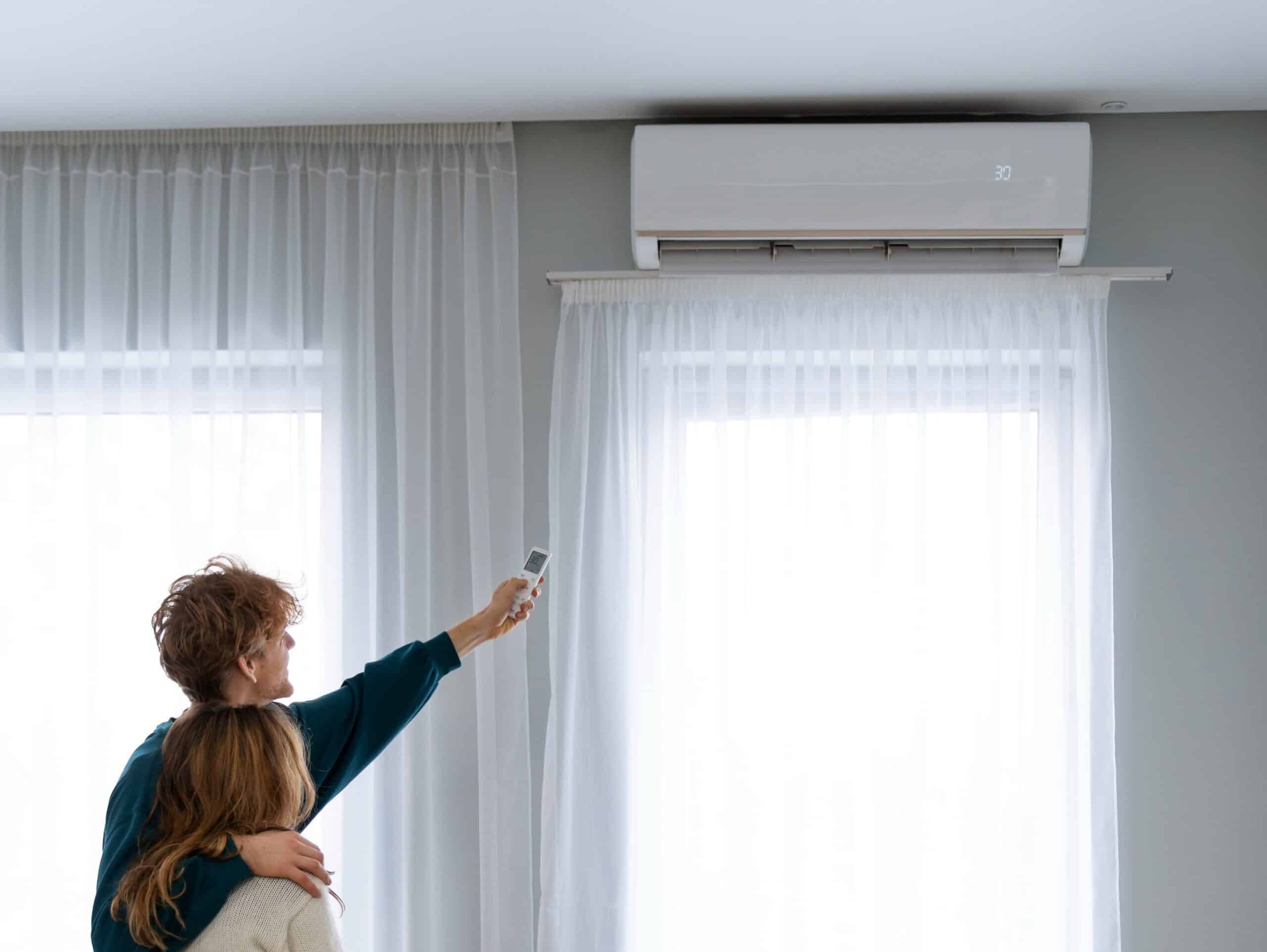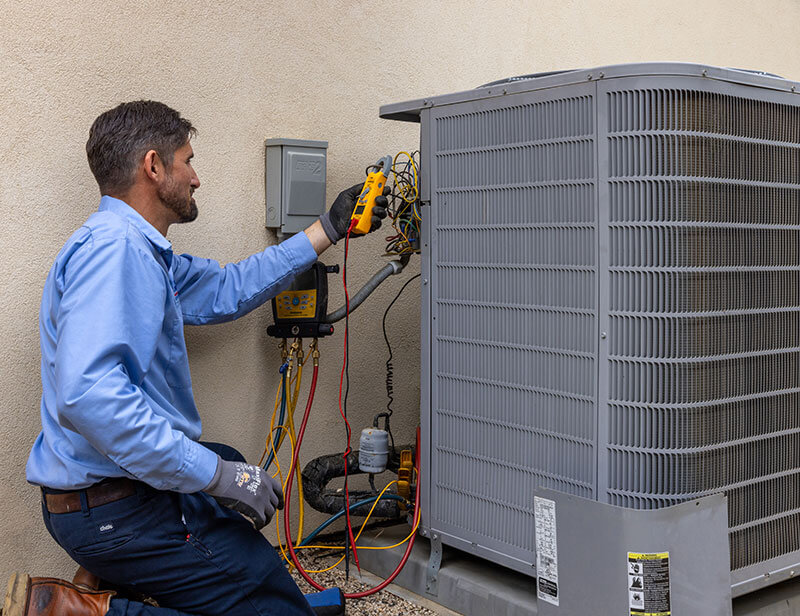Efficient Heating Repairs Done Right by DMAKS HVAC Experts.
Efficient Heating Repairs Done Right by DMAKS HVAC Experts.
Blog Article
How to Choose the Right HVAC System for Your Needs
Picking the ideal cooling and heating system is a critical decision that calls for mindful factor to consider of different elements. Begin by assessing your home's size, format, and distinct demands, as these aspects dictate the essential ability and setup of the system. Additionally, developing a budget that includes setup and long-term functional expenses is essential. As you weigh your alternatives, understanding energy performance scores and the implications of your neighborhood climate will certainly play a considerable role in your option. The myriad of system kinds offered can complicate this procedure, leading one to question which course eventually leads to ideal convenience and effectiveness.
Assess Your Home Size
Evaluating your home size is a vital initial action in picking the ideal HVAC system. A Heating and cooling system that is too small will struggle to maintain comfortable temperatures, leading to increased energy consumption and wear on the unit.
To accurately assess your home dimension, gauge the square video of each space, thinking about aspects such as ceiling height and the design. Additionally, consider the insulation quality and the variety of home windows, as these aspects impact thermal performance. Homes with open flooring strategies may require various system arrangements contrasted to those with many separated spaces.
Making Use Of the Guidebook J tons calculation method can provide a more accurate estimate of your HVAC requires. This technique accounts for numerous variables, including local environment, solar gain, and occupancy patterns. By carefully reviewing these elements, you can ensure that your picked cooling and heating system is suitably sized, bring about improved comfort, power efficiency, and long life of the equipment.
Determine Your Budget Plan
Determining your spending plan is a critical action in the a/c system selection procedure, as it establishes the specifications for your options - DMAKS HVAC. A cooling and heating system is a substantial investment, and comprehending your financial limitations will certainly help narrow down selections that fit within your means
Begin by analyzing not only the initial acquisition cost however also setup prices, which can vary dramatically depending on the complexity of the task. Additionally, consider continuous expenditures such as maintenance, repair services, and power consumption. A system may appear inexpensive at first yet can cause greater costs in time if it is less effective.
It is suggested to allocate a contingency fund for unforeseen expenditures that might emerge during installation or initial system modifications (DMAKS HVAC). Furthermore, check out financing choices or refunds that might be offered, as these can reduce the worry of ahead of time prices
Ultimately, having a clear spending plan enables you to engage with HVAC specialists a lot more efficiently, guaranteeing you get tailored suggestions that lines up with your financial objectives and home requirements. By being diligent regarding your budget, you can make informed choices that improve convenience without jeopardizing financial security.
Evaluate Energy Effectiveness
Power performance plays a crucial role in the general performance and cost-effectiveness of your a/c system. When selecting a system, it is crucial to consider its energy performance scores, as these numbers directly influence your utility costs and ecological impact. Search for systems with a high Seasonal Power Effectiveness Proportion (SEER) for cooling down and a high Yearly Fuel Utilization Performance (AFUE) rating for heating. Greater ratings suggest better efficiency, implying even more comfort for much less energy usage.
In addition, take into consideration the Energy Star accreditation, which indicates that the system fulfills stringent performance standards set by the Epa. Spending in a Power Star-rated HVAC system can result in considerable Click This Link cost savings gradually, specifically in areas with extreme temperature changes.
Another factor to review is the system's size and ability. An extra-large or small device can result in inefficiency and enhanced energy prices. DMAKS HVAC. Appropriate sizing, often figured out with a Hand-operated J visite site lots computation, guarantees that the system operates at optimum performance


Take Into Consideration Environment and Setting
When choosing a HVAC system, it is essential to think about the regional environment and environmental problems, as these factors significantly affect the system's performance and effectiveness. Different areas experience varying temperature level extremes, humidity levels, and seasonal changes, all of which influence home heating and cooling down demands.

In addition, neighborhood ecological aspects, such as air high quality and possible allergens, need to inform your option. Equipments furnished with advanced purification technologies can help alleviate my link toxins and give cleaner air. In addition, consider the power resources offered in your area-- some HVAC systems are more effective when powered by gas or renewable energy resources.
Inevitably, aligning your cooling and heating system choice with your local climate and environmental considerations will result in improved comfort, boosted performance, and reduced energy expenses.
Explore System Kind and Attributes
As home owners look for to enhance comfort and effectiveness, checking out the numerous sorts of cooling and heating systems and their one-of-a-kind features ends up being crucial. The main types of cooling and heating systems include air conditioning, warmth pumps, ductless mini-split systems, and furnaces. Each system offers distinctive advantages customized to various needs and preferences.
Central air systems supply uniform air conditioning throughout a home, making them suitable for bigger areas. Heatpump serve as both home heating and cooling down solutions, utilizing electrical power to transfer warmth, which can cause lower power expenses. Ductless mini-split systems are becoming progressively preferred as a result of their flexibility and convenience of installation, permitting homeowners to regulate the temperature level in individual spaces without substantial ductwork.

Final Thought
Finally, selecting the suitable a/c system necessitates cautious factor to consider of numerous variables, including home size, budget restrictions, energy effectiveness, neighborhood environment, and readily available system types. An extensive evaluation of these aspects makes certain optimum convenience and cost-effectiveness. By following an organized strategy, home owners can make educated decisions that line up with their certain requirements and preferences, eventually resulting in enhanced indoor air quality and energy financial savings.
Report this page